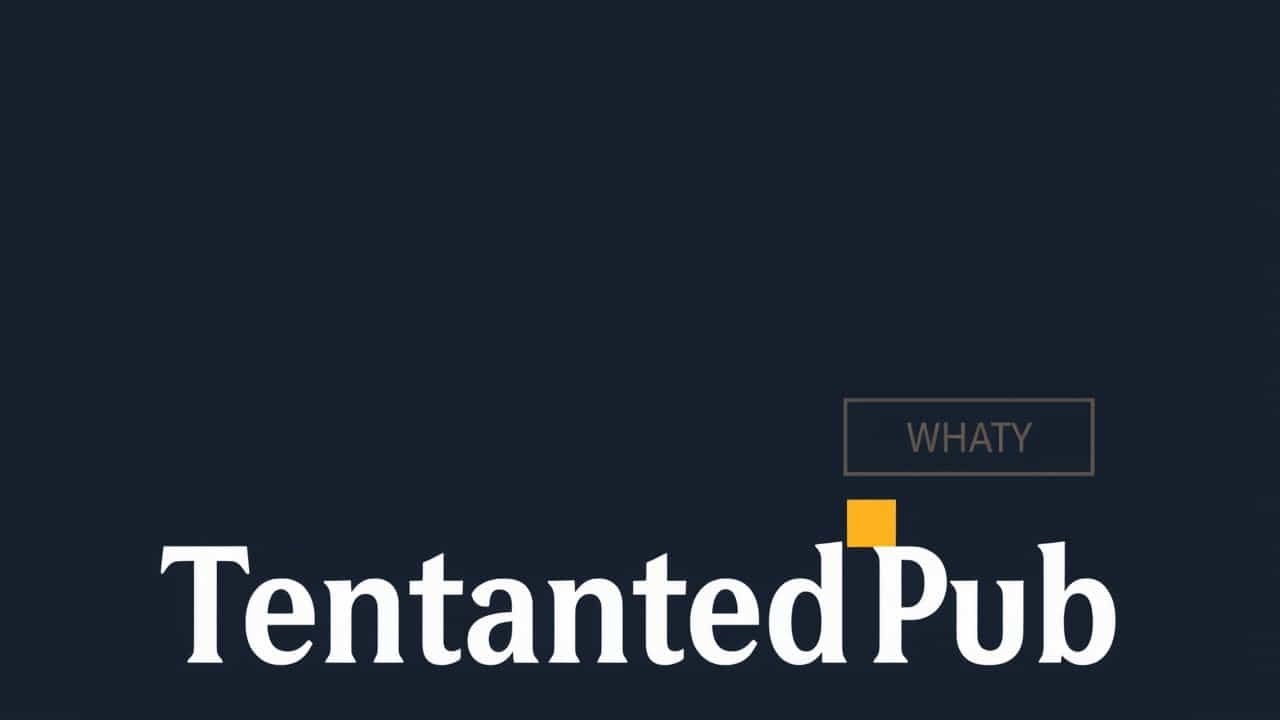A tenanted pub is a type of pub business where the premises are leased from a brewery or pub company by a tenant, who operates it as their own business. Unlike freehold pubs, where the owner has complete control, a tenanted pub requires the tenant to follow certain agreements, often including purchasing beer and other supplies from the landlord.
This topic explores the concept of tenanted pubs, how they work, their advantages and disadvantages, and what to consider before becoming a tenant.
What Is a Tenanted Pub?
A tenanted pub is a licensed establishment run by an independent operator (tenant) who rents the property from a larger company, usually a brewery or pub chain. The tenant manages the day-to-day operations, hires staff, and takes care of customer service, while the pub owner retains control over the property and supply agreements.
This model differs from managed pubs, where the pub company directly employs staff and handles operations.
How Does a Tenanted Pub Work?
-
The Pub Company or Brewery Owns the Property
- Large brewing companies or pub groups own multiple pubs and lease them to independent tenants.
-
The Tenant Runs the Business
- The tenant is responsible for daily operations, including staffing, marketing, and customer service.
-
Agreement Terms Are Set
- The pub company and tenant sign a contract outlining rent, supply agreements, and responsibilities.
-
Revenue and Costs Are Managed by the Tenant
- The tenant earns profits from drink and food sales, but must pay rent and often buy supplies from the pub company.
Types of Tenancy Agreements
1. Fixed-Term Tenancy
A short-term agreement, often 3 to 5 years, where the tenant operates under fixed rent and supply conditions.
2. Fully Tied Tenancy
The tenant must buy beer, cider, and other drinks from the pub company, often at higher prices than in the open market.
3. Partial Tie Agreement
The tenant can source some products independently, giving them more flexibility in pricing and selection.
4. Free-of-Tie Lease
The tenant has complete freedom to buy supplies from any vendor but may pay higher rent to the pub company.
Key Responsibilities of a Pub Tenant
1. Managing Finances
The tenant must handle all business expenses, including rent, wages, stock purchases, and utilities.
2. Hiring and Training Staff
Recruiting, training, and retaining a skilled workforce is crucial for running a successful pub.
3. Marketing and Promotions
Effective advertising, social media, and event planning can attract more customers and boost sales.
4. Ensuring Compliance with Licenses
Tenants must adhere to alcohol licensing laws, food safety regulations, and local business permits.
Advantages of Running a Tenanted Pub
✅ Lower Upfront Costs
- Compared to buying a pub outright, tenancy agreements require less capital investment.
✅ Support from the Pub Company
- Some landlords offer training, marketing support, and maintenance services.
✅ Established Customer Base
- Many tenanted pubs are in prime locations with existing clientele, reducing the risk of starting from scratch.
✅ Flexibility in Operations
- Tenants have control over menu choices, staffing, and promotions, depending on the agreement.
Disadvantages of a Tenanted Pub
❌ Limited Control Over Supply
- Tied agreements may force tenants to purchase stock at higher prices, reducing profit margins.
❌ Rent and Costs Can Be High
- Some agreements include rising rental costs, making long-term profitability challenging.
❌ Long-Term Commitments
- Exiting a tenancy before the contract ends may involve penalties or financial losses.
❌ Maintenance and Repairs
- Some contracts make tenants responsible for property maintenance, adding extra costs.
How to Choose the Right Tenanted Pub
1. Research the Pub Company
- Understand their reputation, support system, and agreement flexibility.
2. Assess the Location
- A good location with high foot traffic and local demand increases success chances.
3. Review the Tenancy Agreement Carefully
- Check for hidden costs, restrictions, and renewal terms before signing.
4. Calculate Expected Costs and Profits
- Consider expenses like rent, stock, wages, and maintenance to estimate potential earnings.
5. Talk to Current or Former Tenants
- Learning from other operators’ experiences can help avoid common mistakes.
A tenanted pub offers an exciting business opportunity for those passionate about the hospitality industry. While it provides a lower-cost entry into pub management, tenants must carefully analyze agreements, manage finances, and adapt to market conditions. Choosing the right pub company, negotiating favorable terms, and running efficient operations can lead to long-term success.
